By Amanda Rose Newton
Florida may not get the frost and snow flurries that blanket northern gardens, but our cooler months are still a time of quiet transition. As the days shorten and blooms fade, seed-bearing plants take center stage, offering vital nourishment to the many birds, pollinators, and small mammals that rely on natural food sources through winter.
This month’s Garden Habitat Heroes spotlight goes to those unsung seed-producers that make your garden both beautiful and bountiful for wildlife.
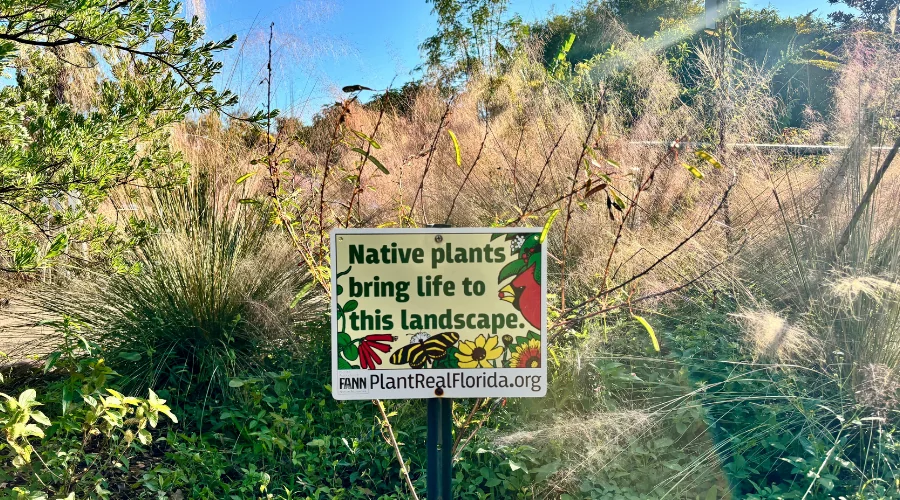
Why Seeds Matter in Winter
When insects grow scarce and fruiting plants go dormant, seeds provide the essential nutrition gap for wintering birds, especially cardinals, sparrows, and goldfinches. These tiny powerhouses are packed with fats, oils, and proteins. A mixture of all three of these are what wildlife needs to maintain energy in cooler temperatures.
By leaving seed-bearing plants standing through winter (instead of cutting them back), you’re offering a natural buffet for your feathered visitors and giving next season’s plants a head start on reseeding. It’s a win-win: habitat and regeneration in one.
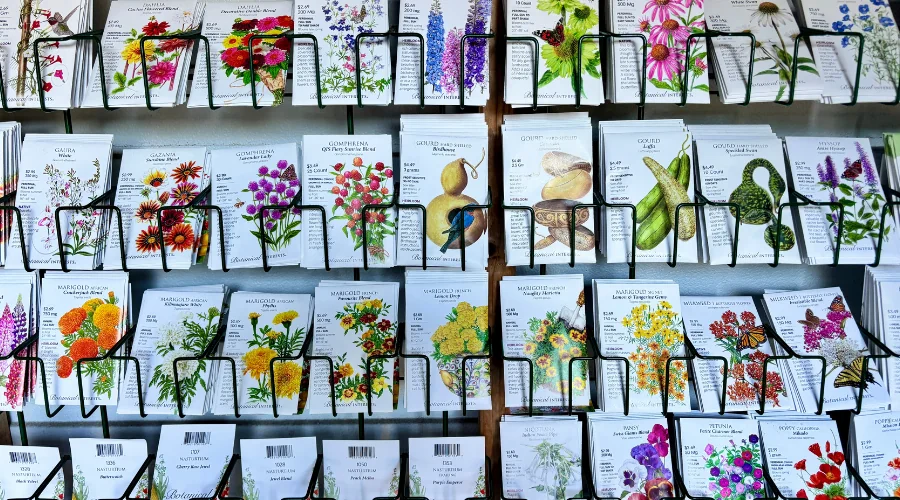
Florida-Friendly Seed-Bearers for Wildlife
Even in mild winters, many native and Florida-Friendly plants will continue to produce or hold seeds well into the season. Here are some of the best choices for both beauty and wildlife value:
1. Black-Eyed Susan (Rudbeckia hirta)
A classic choice that thrives in Florida’s sandy soils, Black-Eyed Susan produces abundant seeds that attract finches and other small songbirds. You can improve the mileage you get out of your Rudbeckia by not deadheading them and instead leaving the seeds for birds and other habitat heros to enjoy.
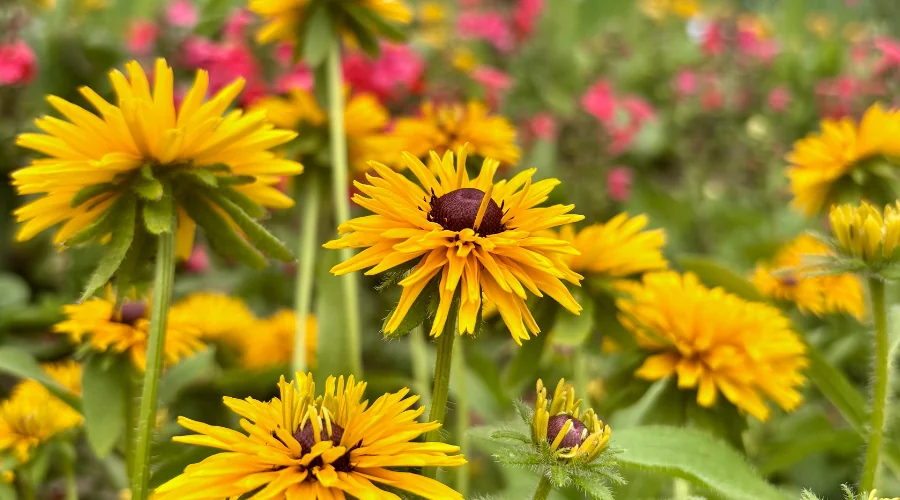
2. Coreopsis (Coreopsis lanceolata and C. leavenworthii)
Florida’s state wildflower is more than a burst of sunshine in the garden. Once the petals fade, the seed heads ripen into a feast for birds. They also happen to be hardy perennials that self-seed readily, creating colorful drifts year after year.
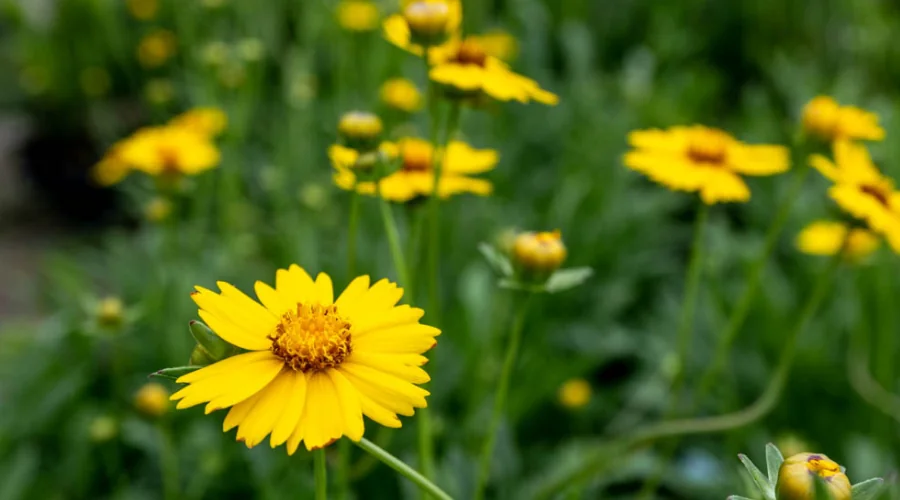
3. Blanket Flower (Gaillardia pulchella)
A coastal favorite that blooms nearly year-round in the right spot, Blanket Flower’s seed heads attract small birds while also helping reseed the plant naturally. Its drought tolerance and bright red-orange petals make it a favorite of both gardeners and pollinators.
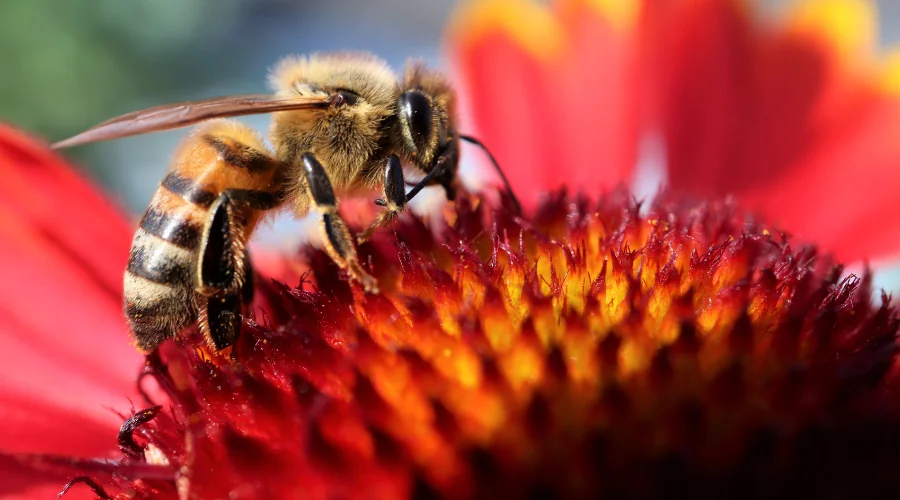
4. Muhly Grass (Muhlenbergia capillaris)
This is probably the most versatile plant you can purchase for your landscape! The iconic pink plumes of Muhly Grass turn golden-tan by winter, forming airy seed clusters that sway beautifully in the breeze while feeding finches and sparrows. Plant it in full sun and well-drained soil for the best performance.
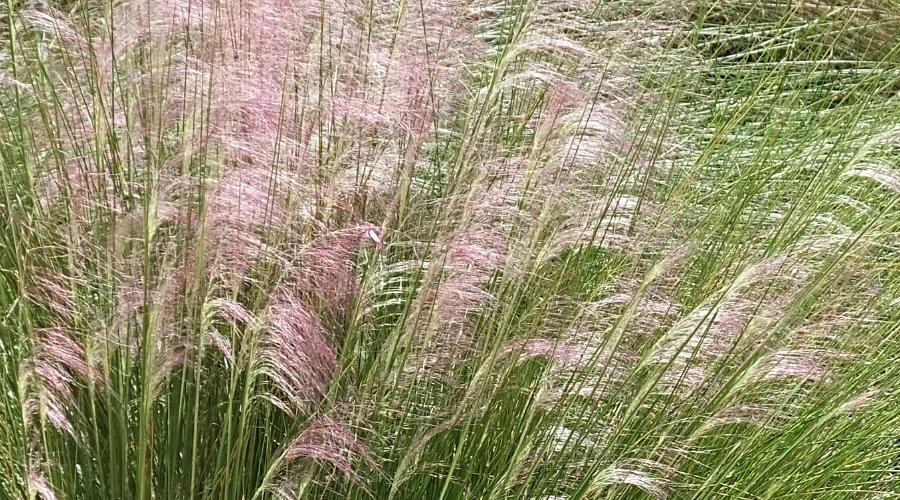
5. Native Sunflowers (Helianthus debilis and Helianthus angustifolius)
Few plants are more wildlife-friendly than Florida’s native sunflowers. Their late-season blooms provide nectar for pollinators, and the resulting seed heads draw in cardinals, titmice, and even migrating warblers.
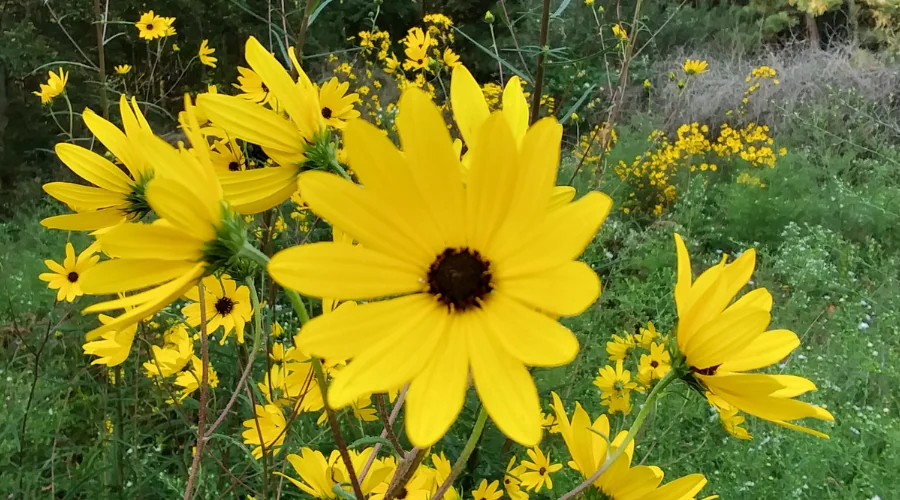
6. Beautyberry (Callicarpa americana)
While not a “seed-bearer” in the traditional sense, Beautyberry earns an honorable mention for its clusters of bright purple berries that persist into winter. They’re a critical food source for mockingbirds, thrashers, and catbirds.
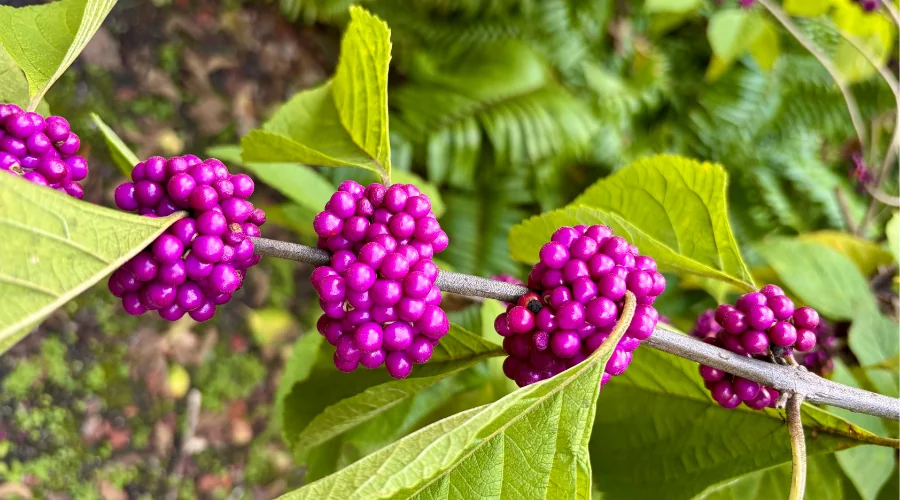
Tips for Creating the Ideal Habitat Hero Seed Sanctuary
Resist the urge to tidy up. Leave seed heads, dried grasses, and stems standing until early spring. They shelter insects and provide perching points for birds.
Mix heights and textures. Combine tall grasses, medium wildflowers, and low groundcovers for layered habitat and visual interest.
Go organic. Skip pesticides during winter months. The overwintering bees and butterflies often shelter in stems and soil.
Add a water source. A simple bird bath or shallow dish refreshed regularly can make your garden a true winter oasis.
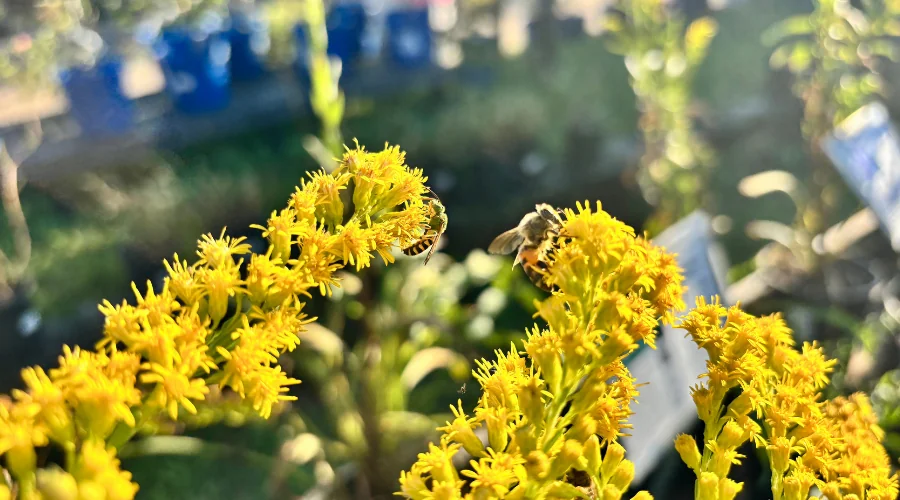
Nature’s Recycling Program
By planting and protecting seed-bearing natives, you’re helping sustain the natural cycle. In feeding the present, your plants will be reseeding for the future. Come spring, many of these plants will sprout anew from their fallen seeds, creating a self-sustaining ecosystem that benefits you and the wildlife that visit your yard.


